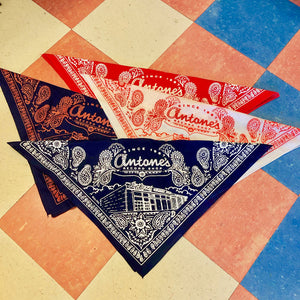
light curl on right edge of booklet
This is the original release, with "Steal Away" as track 17. [r14853787 is a reissue, with "RE-1" in the matrix number, and "Saturday Night At The Movies" as track 17. Volume 16 of a 30 volume set. Track durations obtained from software. Complete liner notes: Nineteen sixty-four is best known in the history of American pop as the year of the British Invasion. But while the Beatles' blitzkrieg certainly had far-reaching effects, 1964 also saw plenty of important homegrown activity. In Detroit, America's first substantially successful black-owned record label, Motown, forged ahead with increasing commercial prosperity, while defining an instantly recognizable sound. In Chicago, Memphis and elsewhere in the South, other varieties of the gospel-pop fusion called soul were being successfully developed. On the West Coast, surf music still made waves, while car songs raced on with reckless abandon. For the first time, however, 1964 saw pop music become a truly transatlantic proposition, thanks to the refreshing onslaught of startling new English bands. While Liverpool's Gerry and the Pacemakers were hardly the boldest of these British groups, lead singer Gerry Marsden's distinctly British voice caught the fancy of American listeners. The melody and pleasant mood of Don't Let the Sun Catch You Crying were markedly similar to the group's follow-up hit, Ferry Cross the Mersey. By contrast, the Searchers' Don't Throw Your Love Away was far more forceful. The group's vocal harmonies and use of amplified guitars foreshadowed the folk-rock formula that would soon help the Byrds take flight. Peter and Gordon's I Don't Want to See You Again, written by John Lennon and Paul McCartney, helped to build the reputation of a young British singer named Peter Asher. Asher, whose sister Jane was them McCartney's girlfriend, went on to become a trendsetting producer. Asher perfected the '70s country-rock sound of singers like James Taylor and Linda Ronstadt, who capitalized on the Byrds' groundbreaking popularization of country music among "hip" audiences. Country previously had been scorned as hick and politically incorrect. (The Beatles would also record some country material in 1965, paying homage to their idols, Carl Perkins and Buck Owens, but these were personal tributes and did not have the same stylistic and cultural impact.) Soul music in 1964 ran the gamut from down-home to urbane. At one extreme was Jimmy Hughes's slightly out-of-tune yet powerful Steal Away, which remains an R & B standard to this day. Steal Away was among the first soul songs to be recorded at Rick Hall's legendary Fame Studio in Muscle Shoals, Alabama. Hall originally cut the tune as a demo in 1962, but when no one had recorded it a year later, he finally decided to release Hughes's rendition in 1964. The song, which helped tum adultery into a standard theme in soul music (other examples include James Carr's The Dark End of the Street and Clarence Carter's Slip Away), was also an R & B hit for Johnnie Taylor in 1970. Bobby "Blue" Bland had many hits for Houston's Duke label, including the gospel-influenced Ain't Nothing You Can Do. Like his other masterpieces (Turn On Your Love Light, Cry Cry Cry and I Pity the Fool), this record showcased both Bland's vocal dynamics (he could effortlessly move from a croon to a scream) and the excellent arrangements of his bandleader, Joe Scott. When Bland was once asked how important Scott was to his sound, he replied, "I would say he was everything." Although Duke Records never attained the global status of Motown, it, too, was a pioneering black-owned outfit, run with an iron hand by Don Robey. Robey began in the record business in 1949 with a blues-and-gospel label called Peacock, named after his popular Houston nightclub, the Bronze Peacock. Up North in Detroit, Motown was achieving considerable success with its female artists. The Velvelettes were a quintet, which was unusual not only for a Motown group but also for any girl group. In Needle in a Haystack, all five voices in harmony take an octave jump on "you better look before you lee-eap, yeah!" As with the Velvelettes' song, the Marvelettes' Too Many Fish in the Sea (also a hit in 1967 for Mitch Ryder and the Detroit Wheels) was co-authored and produced by Norman Whitfield, who would transform the Temptations' sound in the late '60s on recordings like Psychedelic Shack and Cloud Nine. Motown's ace songwriters - Eddie Holland, Brian Holland and Lamont Dozier - continued their hit-making methods with the savvy production philosophy of "if it ain't broke, don't fix it." Their dynamic production of Martha and the Vandellas' Quicksand was obviously indebted to its predecessor, Heat Wave, while the Supremes' Baby Love was a clever remake of Where Did Our Love Go. In 1964, Baby Love was one of only three American records to top the British charts (the other two were Roy Orbison's It's Over and Oh, Pretty Woman). In 1964, Motown also started to look beyond Detroit for new talent. One addition to their roster was a Los Angeles singer named Brenda Holloway, who plotted her discovery by attending a DJ convention in Los Angeles. Berry Gordy Jr. walked in while the sexy Holloway was lip-synching to a Mary Wells record, and she created enough of an impression to earn a Motown contract. Holloway, whose biggest hit was the gripping Every Little Bit Hurts, went on to write and record You've Made Me So Very Happy, popularized by Blood, Sweat and Tears in 1969. Motown did not have a monopoly on smooth Northern soul, however. In Chicago, Curtis Mayfield was building a small dynasty, working with his own Impressions, as well as with Gene Chandler, Billy Butler, Walter Jackson and Major Lance. Both the Impressions' Talking About My Baby and Major Lance's Um, Um, Um, Um, Um, Um were written by Mayfield and featured the beautiful arrangements of Johnny Pate. Meanwhile, in New York City, the production team of Hal David and Burt Bacharach achieved remarkable staying power with Dionne Warwick. Walk On By was one of Warwick's finest moments, featuring a modified bossa nova beat that merged with the bittersweet quality of the singer's voice. On the West Coast, the Beach Boys were at the center of a new musical craze - car songs. The group scored their first No. 1 with their best two-sided single, I Get Around and Don't Worry Baby, both written and produced by Brian Wilson. While I Get Around was all hot-rod machismo, Don't Worry Baby was a poignant confession of adolescent doubt featuring Wilson's vocals. After all the Beach Boys' fast-paced surf and car songs, Don't Worry Baby represented a great musical progression for the group, foreshadowing the complexity of Pet Sounds and Smiley Smile. Nineteen sixty-four was perhaps Brian Wilson's busiest year, as he also wrote and produced records for the Honeys, the Castells, Gary Usher and Paul Petersen (of television's Donna Reed Show). Wilson co-authored Jan and Dean's Drag City as well as a number of songs for Muscle Beach Party, one of Frankie Avalon and Annette Funicello's teenage beach movies. When Capitol Records refused to release the Beach Boys' Little Honda as a single (it was already available on their album All Summer Long), Wilson took the song to the Hondells and sang lead on their hit version. The Hondells originally had been assembled by West Coast producer Mike Curb, a future lieutenant governor of California, to record a commercial for Honda motorcycles. Southern rock 'n' roll had one of its greatest moments with Roy Orbison's Oh, Pretty Woman. The song's origins are rooted in a casual comment made by Orbison's song-writing partner, Bill Dees, while the two were working together at Orbison's house. When Orbison asked his wife Claudette if she needed any money for a trip to the store, Dees said, "A pretty woman never needs any money." Both men quickly agreed that a song about a pretty woman was in order, and a classic was born. Like Orbison, Jumpin' Gene Simmons recorded rockabilly for the Memphis-based Sun label in the late '50s. Simmons then moved on to become the lead singer for Bill Black's Combo in the early '60s, as well as a solo recording artist for the Hi label in Memphis. In 1964, Hi tried to record Domingo Samudio (soon to be known as Sam the Sham) on a new version of Haunted House, a song Samudio had already recorded for the small Dingo label. When Samudio refused, Gene Simmons jumped in. Haunted House reached No. 11 by August 1964, despite heavy competition from the British groups. "Actually," Simmons told rockabilly historian Randy McNutt, "the English thing helped me, because the disc jockeys were tired of all that stuff, and my record was refreshing." Ironically, Simmons quit his gig as the lead singer of Bill Black's Combo just before Black was hired as an opening act on the Beatles' 1964 American tour. And so, the British Invasion swept right over Jumpin' Gene Simmons, as it did so many others. - Ben Sandmel
Media Condition: Very Good Plus (VG+)
Sleeve Condition: Very Good Plus (VG+)
Country: US
Released: 1989
Genre: Rock, Funk / Soul, Pop
Style: Surf, Rock & Roll, Rhythm & Blues, Soul, Country Rock
Track listing:
1. Roy Orbison - Oh, Pretty Woman 2:58
2. Major Lance - Um, Um, Um, Um, Um, Um 2:22
3. Peter & Gordon - I Don't Want To See You Again 2:01
4. Chuck Berry - Nadine (Is It You?) 2:34
5. Brenda Holloway - Every Little Bit Hurts 2:53
6. The Beach Boys - Don't Worry Baby 2:49
7. The Hondells - Little Honda 2:05
8. Gene Simmons (2) - Haunted House 2:35
9. The Velvelettes - Needle In A Haystack 2:26
10. Dionne Warwick - Walk On By 2:53
11. Gerry & The Pacemakers - Don't Let The Sun Catch You Crying 2:37
12. The Supremes - Baby Love 2:39
13. The Searchers - Don't Throw Your Love Away 2:17
14. The Ventures - Walk, Don't Run '64 2:25
15. The Marvelettes - Too Many Fish In The Sea 2:30
16. Little Anthony & The Imperials - I'm On The Outside (Looking In) 3:09
17. Jimmy Hughes - Steal Away 2:28
18. Bobby Bland - Ain't Nothing You Can Do 2:31
19. Jan & Dean - Drag City 2:17
20. Martha Reeves & The Vandellas - Quicksand 2:36
21. The Impressions - Talking About My Baby 2:32
22. Bobby Vinton - Mr. Lonely 2:39
Data provided by Discogs


















